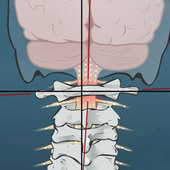The importance of a good night’s sleep can hardly be overstated. Our mental resilience, mood, and even physical comfort can all be affected by the amount and quality of sleep that we experience. It has been suggested that cardiovascular disorders, metabolic effects, depression, learning problems, and other negative health problems can be the result of poor sleep quality. It is about more than just getting 8 hours of shut eye; to really understand how to maximize the benefits of sleep, we need to focus on the science behind it.

What controls our sleep cycles?
Two particular hormones are responsible for waking us up in the morning and making us feel alert: cortisol and adrenaline. Cortisol is released from the adrenal cortex early in the morning (and periodically throughout the day), but of special importance is that the release of cortisol triggers an internal timer that will dictate when melatonin will be released, which is about 12-14 hours later. Melatonin is what makes us feel sleepy and fall asleep, so having it released at the appropriate time is very important. This cycle occurs naturally, with or without light, but it is also built so that external factors can influence and govern it.
The most important environmental factor that will trigger your brain as to whether you should be asleep or awake, is light. Ideally we should wake up with sunlight; sunlight triggers the retinal ganglion cells in our eyes to send a signal to our suprachiasmic nucleus to start the above-mentioned cycle, which is part of the circadian rhythm. If it is not triggered properly, it will mess up the cortisol and melatonin rhythm and can disrupt sleep cycles. These retinal ganglion cells respond best to a particular quality and amount of light which is found at sunrise (even in cloudy weather) and lasts for about an hour while the sun is at a particular angle that projects a lot of blue and yellow light. If those cells do not have the opportunity to trigger the cortisol release properly, the cycle will then be set for a later time. This off-set of the circadian rhythm has been linked to depression and mood disorders.
Get outside!
 Did you know that it is up to 15 times less effective to see sunlight through a window? Many sleep specialists say that it is best to be exposed to natural, morning sunlight outside without sunglasses (although not looking directly at the sun, of course). It does not take long, about 30 seconds in the summer and 2-3 minutes during the other seasons, to help set this cortisol-melatonin rhythm. If you are like many people, your typical morning routine might be to wake up, check your phone, get ready, then hop on the computer or into your car, where you are only seeing sunlight through a window, and usually much later than is considered ideal. So pop outside in the morning, breathe in some fresh air, admire the morning light, and optimize your sleep cycle!
Did you know that it is up to 15 times less effective to see sunlight through a window? Many sleep specialists say that it is best to be exposed to natural, morning sunlight outside without sunglasses (although not looking directly at the sun, of course). It does not take long, about 30 seconds in the summer and 2-3 minutes during the other seasons, to help set this cortisol-melatonin rhythm. If you are like many people, your typical morning routine might be to wake up, check your phone, get ready, then hop on the computer or into your car, where you are only seeing sunlight through a window, and usually much later than is considered ideal. So pop outside in the morning, breathe in some fresh air, admire the morning light, and optimize your sleep cycle!
Interestingly, another thing that helps to anchor our circadian rhythm is the sunset. When the sun is at a lower angle in the sky (typically about an hour before sunset), this helps inform the suprachiasmic nucleus that it is the end of the day. Setting the circadian rhythm properly and consistently creates an anchor, and it can help to produce prolonged and consistent quality sleep.
Turn off the TV!
Another challenge that we face is that we have access to light, even after natural light is gone; this includes cell phones, tablets, televisions, computers, and light bulbs! Light that hits the retinal ganglion cells between 11:00 pm and 4:00 am activates a part of the brain called the habenula, which suppresses dopamine, a natural antidepressant and “feel-good” hormone. Neuroscientists explain that if you get light exposure once in a while between those hours it is okay, but consistent light exposure at those times may lead to anxiety, mood disorders, focus and learning issues, and metabolic disruption. Humans were designed to get higher UV light exposure in our eyes during the day and less during the night. The eyes and brain are very sensitive to light exposure at night, and well-renowned neuroscientist Andrew Huberman has said, “If you’re looking at your phone at 1:00 am, you might as well have flown to Abu Dhabi.”
Easy tips for a restful sleep
Takeaways for a good quality sleep are quite simple:
- Expose yourself to sunrise light for a few minutes upon waking
- Expose yourself to sunset light for a few minutes at the end of the day
- Strictly limit artificial light exposure between 11:00 pm and 4:00 am
- Try meditation; it is proven helpful to quiet the mind before bed
- Sleep in a room that is between 16-18 ⁰C (this helps with internal temperature regulation)
Remember that sleeping, like any other habit, requires time to become normalized in our daily lives. Set a goal to aim for improved sleep habits over a 30-day period, and see if optimizing your sleep hygiene helps with your energy and mood. Hopefully these suggestions help create a well-rested, productive, and happy you!

Dr. Mylène Hopf
NUCCA Chiropractic
The Vital Posture™ Clinic
Calgary, Canada



